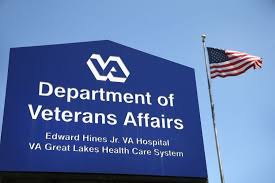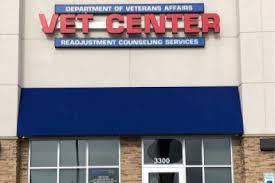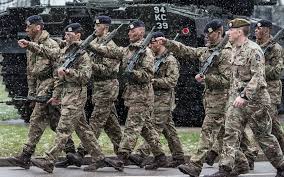Veterans are people who have served in the military and are now back in civilian life. They are heroes who have risked their lives to protect our freedom, and they deserve our respect and gratitude. However, many veterans face a difficult transition back into civilian life.
Because of their service, veterans may experience physical and emotional trauma that can make it hard for them to adjust to a normal life. It can be difficult for them to find employment or even just feel like they fit in with society again. This is why it is so important to provide help for veterans when they return home.
There are many ways that we can help veterans in need. One way is through donations to organizations such as the Wounded Warrior Project or the Disabled American Veterans organization. These organizations provide financial assistance, counseling services, job placement programs, legal aid and more to help veterans get back on their feet after their service has ended.
Another way to help veterans is by volunteering at local veteran-related events or organizations. Many communities have veteran-focused charities that need volunteers to assist with fundraising events or other activities. Volunteering is a great way to show appreciation for our veterans’ service and sacrifice while also providing much-needed support for them as they reintegrate into civilian life.
Finally, we can simply show our appreciation by thanking veterans whenever we encounter them in public or online. A simple “thank you” can go a long way in showing our gratitude for all that they have done for us and our country.
By taking these steps, we can ensure that those who have served our country receive the support they need and deserve as they transition back home from military service.
The seven benefits of helping veterans:
- Helps veterans reintegrate into civilian life – Providing assistance to veterans helps them transition back into civilian life, allowing them to develop the skills and resources needed for success.
- Reduces homelessness among veterans – Many organizations provide housing assistance and other services to help prevent veteran homelessness.
- Improves mental health of veterans – Mental health support is essential for many veterans, who may struggle with PTSD or depression due to their service experience.
- Provides employment opportunities – Organizations that help veterans often have job training programs and other initiatives designed to help them find employment after leaving the military.
- Offers educational benefits – Veterans can take advantage of various educational benefits, including tuition assistance and scholarships, when they need additional training or higher education in order to pursue a career path after their service has ended.
- Connects families with resources – Organizations that assist veterans often provide support services for family members as well, such as counseling and financial aid information for spouses or children of vets who are struggling financially after their loved one’s departure from active duty service .
- Supports veteran-owned businesses – Many organizations offer resources specifically designed for veteran entrepreneurs in order to help them get started on a new business venture or expand an existing one
What are the seven drawbacks of assisting veterans?
- High Costs
- Limited Resources
- Unclear Policies
- Lack of Awareness
- Stigma
- Bureaucracy
- Disjointed Services
Helps veterans reintegrate into civilian life – Providing assistance to veterans helps them transition back into civilian life, allowing them to develop the skills and resources needed for success.
Veterans of the United States Armed Forces have made incredible sacrifices to protect our freedoms. However, transitioning from military service to civilian life can be a difficult process. Fortunately, there are organizations dedicated to helping veterans reintegrate into civilian life.
These organizations provide veterans with the resources and support they need to transition back into their community. They offer career counseling, job placement assistance, financial planning services, and mental health resources. Veterans can also take advantage of educational opportunities, such as college degrees and vocational training programs.
By providing these services, veterans are able to develop the skills they need to succeed in their new lives. They can gain employment that is commensurate with their experience and qualifications, allowing them to support themselves and their families. Additionally, veterans are able to access mental health care services that help them cope with the stresses of transitioning back into civilian life.
Organizations that help veterans reintegrate into civilian life play an invaluable role in supporting our nation’s heroes. By providing assistance and resources, these organizations give veterans the tools they need to thrive in their new lives outside of the military.
Reduces homelessness among veterans – Many organizations provide housing assistance and other services to help prevent veteran homelessness.
Every day, more and more veterans are finding themselves without a home. The issue of veteran homelessness has become a major problem in the United States, with an estimated 40,000 veterans living on the streets on any given night. Fortunately, there are organizations dedicated to helping veterans get back on their feet and find stable housing.
One of the major benefits of helping veterans is that it reduces homelessness among them. Organizations like Veterans Affairs provide housing assistance and other services to help prevent veteran homelessness. This includes providing temporary housing for those who have lost their homes, as well as assistance with finding permanent housing solutions. Additionally, many organizations offer job placement assistance and other resources to help veterans adjust to civilian life after leaving the military.
By providing these services, organizations are helping veterans to get back on their feet and find stable housing. This not only helps reduce veteran homelessness but also allows them to lead healthier lives by having access to basic necessities such as food, clothing, and shelter. It also allows them to be more productive members of society by being able to find jobs and make a living for themselves.
In short, helping veterans is not only beneficial for those directly impacted but also for society as a whole by reducing veteran homelessness and allowing them to become productive members of society once again.
Improves mental health of veterans – Mental health support is essential for many veterans, who may struggle with PTSD or depression due to their service experience.
Veterans are a special group of people who have given so much to our country. Unfortunately, many veterans suffer from mental health issues such as PTSD and depression due to their service experience. Fortunately, there are many programs in place to help support these veterans and improve their mental health.
One of the most effective ways to help veterans is through mental health support. This can include counseling, therapy, and other forms of psychological treatment. These treatments can help veterans cope with their trauma and work through any issues they may have. Additionally, these treatments can help reduce the symptoms of PTSD and depression, allowing veterans to live healthier and happier lives.
Another way to improve the mental health of veterans is through community-based programs. These programs provide social support for veterans and allow them to connect with other people in similar situations. This can be incredibly beneficial for those struggling with mental health issues as it gives them a sense of belonging and a network of people they can rely on for support.
Finally, providing resources such as financial assistance or housing assistance can also be beneficial for improving the mental health of veterans. These resources can reduce stress levels and provide stability which can lead to better overall mental health outcomes for those who need it most.
Overall, there are many ways that we can help improve the mental health of our veteran population. By providing access to resources and offering mental health support, we can ensure that our veterans have the best possible chance at living healthy and fulfilling lives after their service experience.
Provides employment opportunities – Organizations that help veterans often have job training programs and other initiatives designed to help them find employment after leaving the military.
In recent years, organizations that help veterans have become increasingly important to the veteran community. One of the most vital services these organizations provide is employment opportunities for veterans. Through job training programs, mentorship, and other initiatives, these organizations are helping veterans transition into civilian life and find meaningful employment.
Organizations that help veterans understand the unique challenges faced by individuals transitioning out of the military. They offer programs to help veterans gain new skills, build their resumes, and make connections in the civilian world. These programs often include job-shadowing or apprenticeship opportunities to give veterans a chance to gain hands-on experience in their desired field. Additionally, many organizations partner with employers to provide exclusive job postings for veterans and offer assistance with resume writing and interview preparation.
The efforts of these organizations have been incredibly successful in helping veterans find jobs after leaving the military. By providing access to resources and support networks, they are able to give veterans a better chance at success in their post-military careers. This is an invaluable service that is helping countless veterans make successful transitions into civilian life.
Offers educational benefits – Veterans can take advantage of various educational benefits, including tuition assistance and scholarships, when they need additional training or higher education in order to pursue a career path after their service has ended.
The United States has long recognized the importance of supporting its veterans and providing them with the resources they need to make a successful transition back into civilian life. One of the most important benefits offered to veterans is educational assistance, which can provide them with the opportunity to further their education and gain valuable skills for use in their post-service career.
Veterans can take advantage of a variety of educational benefits, such as tuition assistance and scholarships, depending on their individual needs. Tuition assistance can help cover the costs associated with college courses or technical training programs, while scholarships may be available to help veterans pay for their higher education. These types of benefits can be especially helpful for veterans who are returning to school after an extended absence or those who are seeking additional training in order to pursue a new career path.
In addition to tuition assistance and scholarships, there are also other types of educational benefits available to veterans. The GI Bill provides financial aid for veterans pursuing higher education, while vocational rehabilitation programs can help those who have been disabled during service receive job training and counseling services.
Educational benefits are an invaluable resource for veterans transitioning back into civilian life and can provide them with the opportunity to pursue new career paths after their service has ended. By taking advantage of these resources, veterans can gain the skills needed to succeed in today’s competitive job market.
Connects families with resources – Organizations that assist veterans often provide support services for family members as well, such as counseling and financial aid information for spouses or children of vets who are struggling financially after their loved one’s departure from active duty service .
Veterans and their families often face difficult times following active duty service. One of the best ways to help veterans and their families is to connect them with resources that can provide assistance. Organizations that assist veterans are dedicated to providing support services for family members as well, such as counseling and financial aid information.
By connecting veterans and their families with these resources, organizations are able to ensure that they have access to the help they need. Counseling services can help family members cope with the emotional stress associated with a loved one’s departure from active duty service, while financial aid information can help those who are struggling financially after the veteran’s departure.
In addition, organizations that assist veterans can also connect families with other resources such as job training programs, housing assistance, healthcare benefits, and more. These resources can be invaluable in helping veterans and their families transition back into civilian life after active duty service.
By connecting veterans and their families with the right resources, organizations that assist veterans provide an invaluable service to those who have served our country. By ensuring that they have access to the help they need, these organizations make a difference in the lives of many individuals and families every day.
Supports veteran-owned businesses – Many organizations offer resources specifically designed for veteran entrepreneurs in order to help them get started on a new business venture or expand an existing one
Supporting veteran-owned businesses is an important way to show appreciation for the service of our nation’s veterans. Many organizations are dedicated to providing resources specifically designed for veteran entrepreneurs to help them get started on a new business venture or expand an existing one. These resources can range from educational programs and mentorship opportunities to financial assistance and business advice.
For those looking to launch their own business, there are a variety of resources available. Organizations like the Small Business Administration (SBA) offer educational courses and workshops that cover topics such as creating a business plan, obtaining financing, marketing, and more. Additionally, organizations such as the Veterans Business Outreach Center provide mentorship programs that pair veteran entrepreneurs with experienced professionals who can provide guidance and advice on how to succeed in the business world.
For those looking for financial assistance, there are also many options available. The SBA offers loans specifically designed for veterans, as well as grants that can be used for start-up costs or other needs related to running a business. Additionally, there are tax incentives available for businesses owned by veterans, which can help reduce overhead costs and increase profits.
Overall, supporting veteran-owned businesses is an important way to recognize the service of our nation’s veterans while also helping them achieve their entrepreneurial dreams. Through educational programs, mentorship opportunities, financial assistance, and tax incentives, organizations are working hard to ensure that veterans have all the resources they need in order to succeed in the business world.
High Costs
Providing assistance to veterans is a noble and important cause, one that should be supported by all. Unfortunately, the cost of providing support can be very high, especially when it comes to health care and long-term services.
The cost of health care for veterans can be particularly expensive. Many veterans suffer from physical and mental health issues due to their service in the military, and the cost of treating these conditions can be significant. In addition, many veterans require long-term care services such as home care or nursing home care. These services can also be quite costly.
Furthermore, there are other costs associated with providing assistance to veterans that may not be immediately apparent. For example, there are administrative costs associated with managing programs for veterans, as well as costs for housing and transportation for those who need it. All of these costs add up quickly.
Despite the high costs associated with providing assistance to veterans, it is important that we continue to do so in order to honor their service and ensure they receive the support they need and deserve. We must ensure that our government is providing adequate resources to assist our veterans in times of need.
Limited Resources
Veterans have made tremendous sacrifices for our country, and it is our responsibility to ensure they receive the care and support they need. Unfortunately, there are often not enough resources available to meet the needs of all veterans. This lack of resources can be seen in a variety of areas, from mental health services to housing assistance.
For example, many veterans struggle with mental health issues such as PTSD or depression. However, there are often not enough mental health professionals available to provide the necessary care for all veterans. Additionally, many veterans are unable to access housing assistance due to limited resources. This can leave them struggling to find stable housing and support systems.
The lack of resources available for veterans is a major issue that needs to be addressed. It is essential that we make sure that all veterans have access to the necessary services and support they need. We must work together as a nation to ensure that our veterans receive the care and respect they deserve.
Unclear Policies
Veterans often face unique challenges when returning from service. Unfortunately, navigating the policies surrounding veteran support can be just as difficult as the challenges they face. Many veterans are unaware of the benefits they are entitled to, or find it difficult to access them due to unclear and confusing policies.
The lack of understanding surrounding veteran support is a major problem. Veterans may not know what benefits they are eligible for, or how to apply for them. This can lead to veterans not receiving the help they need and deserve. In addition, many veterans struggle with the bureaucratic red tape that comes with applying for benefits, which can be overwhelming and off-putting.
It is essential that veteran support policies are made more accessible and easier to understand. Organizations such as the VA should provide clear information about what benefits are available and how to access them. In addition, there should be more resources available for veterans in need of assistance in navigating these complex policies.
By making veteran support policies easier to understand, veterans will be able to access the help they need more quickly and easily. This will ensure that those who have served our country receive the support they deserve and have earned through their service.
Lack of Awareness
Veterans are a vital part of our society, and they deserve the utmost respect and support. Unfortunately, many veterans are not receiving the help they need due to a lack of awareness of the services available to them.
The first step in helping veterans is understanding what services are available. Many organizations provide assistance to veterans, such as housing, employment, financial assistance, medical care, education and more. However, if people are unaware of these services or don’t know how to access them, veterans may not be able to get the help they need in a timely manner.
Raising awareness about the services available for veterans is essential in order for them to receive the help they need. Organizations such as the US Department of Veterans Affairs and local nonprofits can provide valuable information about these services and how to access them. Additionally, spreading awareness through social media campaigns can help reach more people who may be unaware of these resources.
It is our responsibility as citizens to ensure that all veterans receive the help they need and deserve. By raising awareness about the services available for veterans, we can make sure that no veteran goes without the necessary assistance.
Stigma
For many veterans, the transition from military service to civilian life can be difficult. Unfortunately, there is still a stigma attached to seeking help from veteran organizations or programs, which can prevent people from getting the assistance they require. This stigma is rooted in a culture of stoicism and self-reliance that has been instilled in many veterans since their time in the military.
The reality is that many veterans are dealing with mental health issues such as post-traumatic stress disorder (PTSD) and depression, and need access to specialized care and support. This can be provided by veteran organizations or programs, but many veterans are too ashamed or embarrassed to seek help due to the stigma attached.
It’s important for all of us to recognize that seeking help is not a sign of weakness or failure, but rather an act of strength and courage. We must do our best to destigmatize seeking help for veterans by encouraging them to reach out for assistance if needed. We must also ensure that these organizations have adequate resources available so that veterans receive the help they deserve.
Bureaucracy
For veterans seeking assistance from the government, navigating the bureaucracy can often be a daunting and frustrating task. With complex paperwork, long wait times, and a lack of information available, many veterans are left feeling overwhelmed and without the help they need.
The government bureaucracy can be especially difficult for veterans who require urgent assistance. With long wait times for appointments and responses to inquiries, veterans are often left without the help they need in a timely manner. This can leave them feeling helpless and discouraged in their search for aid.
In addition to long wait times, veterans may also find themselves struggling to understand the complex paperwork required by the government bureaucracy. Without access to helpful resources or knowledgeable individuals who can guide them through the process, many veterans are left feeling confused and frustrated by the system.
It is essential that we recognize this problem and work to reduce bureaucratic barriers for our veterans. We must ensure that our veterans have access to quick and efficient help when they need it most. By streamlining paperwork processes and providing more resources for understanding government bureaucracy, we can make it easier for our veterans to receive the help they deserve.
Disjointed Services
Veterans are some of the most important members of society, and should be given the utmost respect and appreciation for their service. Unfortunately, many veterans find it difficult to access the services they need due to disjointed or disconnected services.
The various services available for veterans are often spread out across different organizations, making it difficult for veterans to find comprehensive support in one place. This can lead to frustration and confusion as they try to navigate the system and find the support they need. Additionally, many of these services are not well-advertised, making it even harder for veterans to access them.
To make matters worse, there is often a lack of communication between service providers, leading to gaps in care and a lack of continuity for veterans. This can be especially detrimental for those with chronic conditions or mental health issues that require long-term care.
The good news is that there are organizations working hard to bridge this gap by providing more comprehensive support services for veterans. These organizations focus on providing a single point of contact where veterans can access all the information they need in one place. They also work with different service providers to ensure that all aspects of a veteran’s care are taken into account and coordinated effectively.
By addressing this issue head-on and working together towards better coordination of veteran services, we can ensure that all veterans receive the comprehensive support they deserve.




